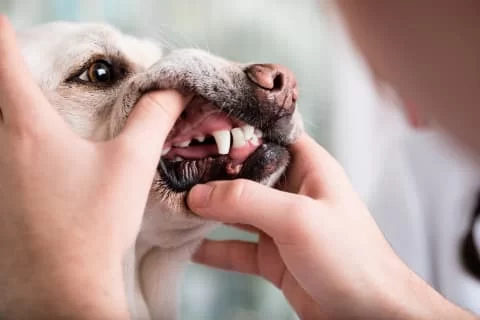How Can I Tell If My Pet Has Dental Disease?
- 1. Understanding Dental Disease in Pets
- 2. Common Symptoms of Dental Disease in Pets
- 3. The Importance of Regular Dental Care for Pets
- 4. Prevention and Treatment Options for Pet Dental Health
- 5. When to Visit the Vet for Dental Concerns
1. Understanding Dental Disease in Pets
Dental disease is one of the most common health issues that pets face, yet it's often overlooked by pet owners. Pets can develop dental problems at any age, but they are particularly prevalent in older animals. Left untreated, dental disease can lead to severe health issues, including tooth loss, infections, and even systemic diseases affecting the heart, liver, and kidneys. Understanding the signs of dental disease and taking proactive measures can make a significant difference in your pet's health.
2. Common Symptoms of Dental Disease in Pets
Recognizing the signs of dental disease in pets is crucial for early intervention. Some common symptoms include:
- Bad Breath: Persistent bad breath (halitosis) is often one of the first signs of dental disease.
- Excessive Drooling: Excessive drooling or a noticeable change in the amount of saliva your pet produces can indicate dental issues.
- Difficulty Eating: Pets with dental pain may have trouble eating, particularly with hard foods.
- Red or Swollen Gums: Inflamed gums or redness around the teeth can indicate gingivitis or periodontal disease.
- Discolored or Loose Teeth: Visible plaque, tartar buildup, or loose teeth are signs of advanced dental disease.
If you notice any of these symptoms, it's important to schedule a visit to the veterinarian to get an accurate diagnosis and discuss treatment options.
3. The Importance of Regular Dental Care for Pets
Dental health is essential to your pet's overall well-being. Just like humans, pets need regular dental care to prevent the buildup of plaque and tartar, which can lead to gum disease and other serious health issues. Regular brushing, professional cleanings, and the use of dental products designed for pets can help maintain their oral hygiene. Pet dental care not only improves their breath but also prevents the pain and discomfort associated with untreated dental disease.
4. Prevention and Treatment Options for Pet Dental Health
There are several steps you can take to ensure your pet's dental health:
- Regular Brushing: Brushing your pet's teeth regularly with pet-safe toothpaste is one of the most effective ways to prevent dental disease.
- Dental Chews: Providing dental chews or toys can help reduce plaque buildup and keep your pet’s teeth clean.
- Professional Cleanings: Professional dental cleanings by a veterinarian are essential for removing plaque and tartar that can't be addressed with at-home care.
- Dental Diets: Specially formulated dental diets can help control plaque buildup and support oral health.
If your pet has developed dental disease, treatment options may include scaling and polishing of the teeth, extractions, and in severe cases, medications to treat infections.
5. When to Visit the Vet for Dental Concerns
If you notice any of the symptoms of dental disease mentioned earlier, it's essential to visit your vet promptly. Regular checkups are also crucial for preventing dental issues before they become severe. Your veterinarian can conduct a thorough oral examination and recommend a treatment plan tailored to your pet's needs. Early detection and intervention can help avoid costly and painful dental procedures later on.
For more information on pet dental care, or to schedule an appointment, visit Hidden Brook Veterinary today.










